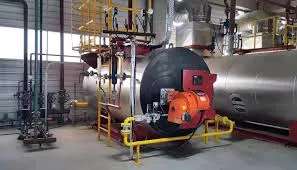- Afrikaans
- Albanian
- Amharic
- Arabic
- Armenian
- Azerbaijani
- Basque
- Belarusian
- Bengali
- Bosnian
- Bulgarian
- Catalan
- Cebuano
- China
- China (Taiwan)
- Corsican
- Croatian
- Czech
- Danish
- Dutch
- English
- Esperanto
- Estonian
- Finnish
- French
- Frisian
- Galician
- Georgian
- German
- Greek
- Gujarati
- Haitian Creole
- hausa
- hawaiian
- Hebrew
- Hindi
- Miao
- Hungarian
- Icelandic
- igbo
- Indonesian
- irish
- Italian
- Japanese
- Javanese
- Kannada
- kazakh
- Khmer
- Rwandese
- Korean
- Kurdish
- Kyrgyz
- Lao
- Latin
- Latvian
- Lithuanian
- Luxembourgish
- Macedonian
- Malgashi
- Malay
- Malayalam
- Maltese
- Maori
- Marathi
- Mongolian
- Myanmar
- Nepali
- Norwegian
- Norwegian
- Occitan
- Pashto
- Persian
- Polish
- Portuguese
- Punjabi
- Romanian
- Russian
- Samoan
- Scottish Gaelic
- Serbian
- Sesotho
- Shona
- Sindhi
- Sinhala
- Slovak
- Slovenian
- Somali
- Spanish
- Sundanese
- Swahili
- Swedish
- Tagalog
- Tajik
- Tamil
- Tatar
- Telugu
- Thai
- Turkish
- Turkmen
- Ukrainian
- Urdu
- Uighur
- Uzbek
- Vietnamese
- Welsh
- Bantu
- Yiddish
- Yoruba
- Zulu
Nov . 14, 2024 05:02 Back to list
gas fired condensing boiler
Understanding Gas Fired Condensing Boilers
In today’s quest for energy efficiency and environmental sustainability, gas fired condensing boilers have emerged as one of the most effective heating systems available. Characterized by their ability to maximize energy extraction from gas, these innovative boilers present a considerable leap in boiler technology, offering both economic and ecological advantages.
What Is a Gas Fired Condensing Boiler?
A gas fired condensing boiler is a type of heating appliance that converts gas into heat using a combustion process. Unlike traditional boilers, condensing boilers are designed to recover and utilize the heat that would otherwise be lost in the flue gases. By extracting additional heat from these gases, condensing boilers operate at a significantly higher efficiency, often ranging from 90% to over 98%, depending on the model and installation.
How Does It Work?
The operation of a gas fired condensing boiler is predicated on the principle of condensation. In a conventional boiler, hot gases produced during combustion are released directly through the flue without utilizing their heat potential fully. In contrast, a condensing boiler cools these gases to the point of condensation, allowing the heat contained within water vapor to be captured and used to pre-heat incoming water.
1. Combustion Process Natural gas is ignited in the combustion chamber. 2. Heat Exchange Hot exhaust gases pass through heat exchangers, where they transfer their heat to the water circulating in the system. 3. Condensation As the flue gases cool, the water vapor condenses into liquid form, releasing additional latent heat, which can further heat the water. 4. Flue Management The remaining gases, now cooler and less harmful, are expelled from the boiler through a venting system designed for low-temperature flue gases.
This effective heat recovery process significantly enhances the boiler’s efficiency, ultimately leading to reduced fuel consumption and lower greenhouse gas emissions.
Benefits of Gas Fired Condensing Boilers
1. High Efficiency The primary advantage of condensing boilers is their exceptional efficiency. By recovering latent heat from the exhaust gases, these systems consume significantly less fuel compared to traditional boilers, resulting in reduced energy bills.
2. Environmental Impact With their higher efficiency ratings, gas fired condensing boilers also contribute to lower carbon emissions. This makes them an environmentally favorable option in the context of global efforts to combat climate change.
gas fired condensing boiler

3. Cost Savings Although the initial installation cost of a condensing boiler may be higher than that of a standard boiler, the long-term savings on energy bills can more than offset this initial investment. Homeowners can expect noticeable savings over time.
4. Versatile Applications These boilers are suitable for various heating needs, including residential homes and commercial buildings. Their adaptability makes them an ideal choice for both energy retrofit projects and new constructions.
5. Improved Comfort Condensing boilers provide more consistent heating and can be easily integrated with modern heating controls, allowing for optimal temperature adjustments and improved overall comfort in living spaces.
Considerations
While gas fired condensing boilers offer numerous benefits, a few factors must be considered prior to installation
- Installation Requirements Proper installation by qualified professionals is crucial for ensuring optimal performance and efficiency. Adequate flue gas management systems must also be designed for the low-temperature exhaust.
- Maintenance Regular maintenance is essential to keep the system running efficiently. This includes inspection and servicing of the heat exchangers and flue systems.
- System Compatibility Not all existing heating systems may be compatible with condensing boilers without significant modifications.
Conclusion
In summary, gas fired condensing boilers represent a significant advancement in heating technology, combining efficiency, comfort, and environmental responsibility. Their ability to recover waste heat and reduce energy consumption not only benefits homeowners through lower energy bills but also contributes positively to our planet. For those considering a new heating system, investing in a condensing boiler could be one of the most effective decisions for improved efficiency and sustainability.
-
8mm Thin-Walled Cast Steel Manhole Cover Pallet Bottom Ring | Durable
NewsAug.04,2025
-
Premium Cast Iron Water Main Pipe: Durable, Corrosion-Resistant
NewsAug.03,2025
-
Durable Cast Iron Water Mains | AI-Optimized Systems
NewsAug.02,2025
-
High-Efficiency Propane Boiler for Baseboard Heat | Save Energy
NewsAug.01,2025
-
Premium Source Suppliers for Various Gray Iron Castings
NewsJul.31,2025
-
Durable Cast Iron Water Main Pipes | Long-Lasting
NewsJul.31,2025


